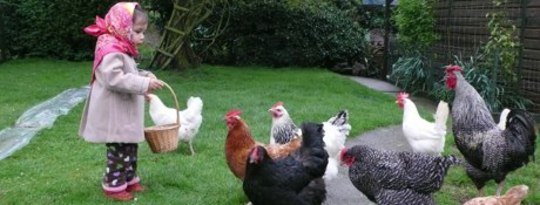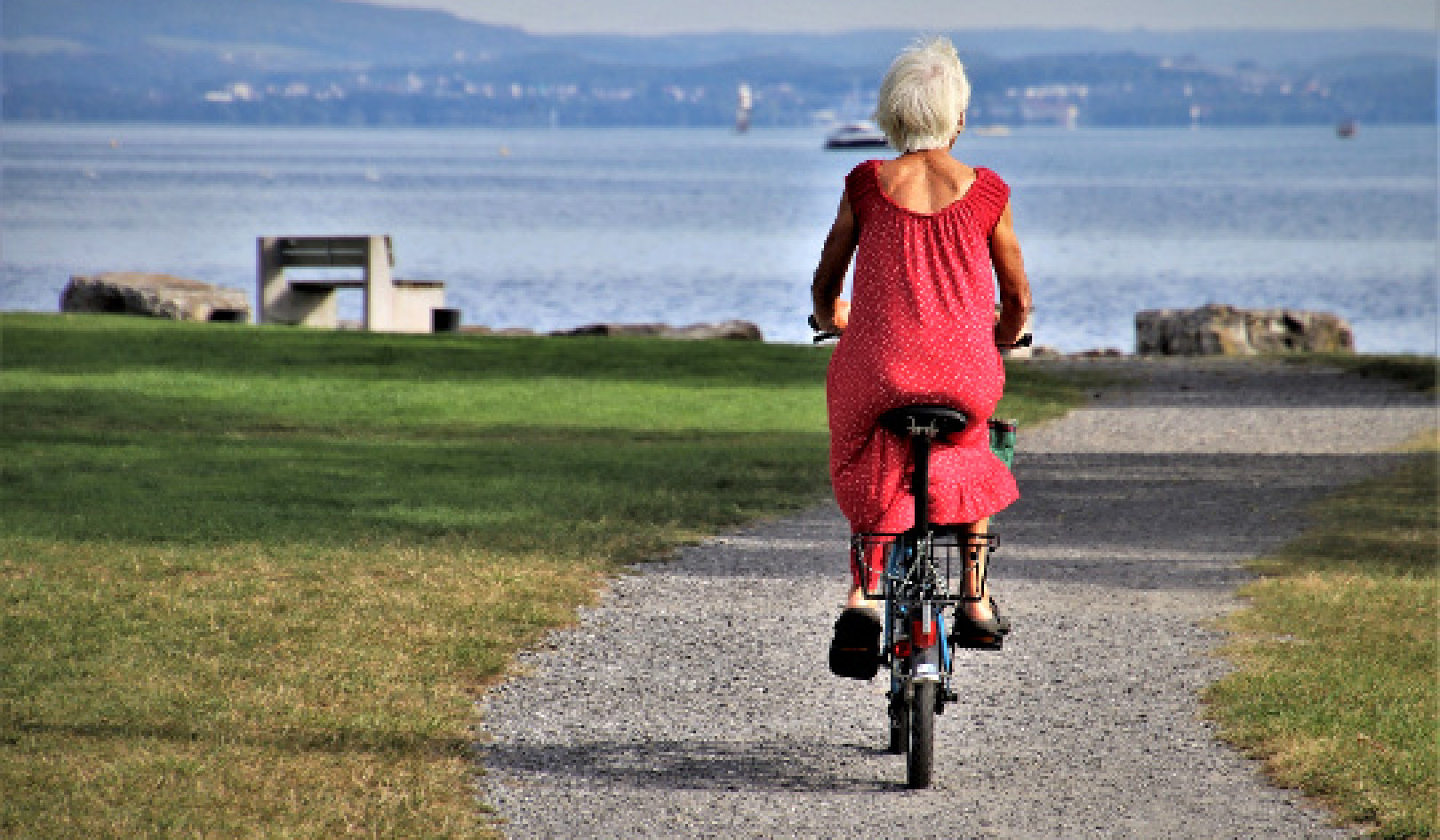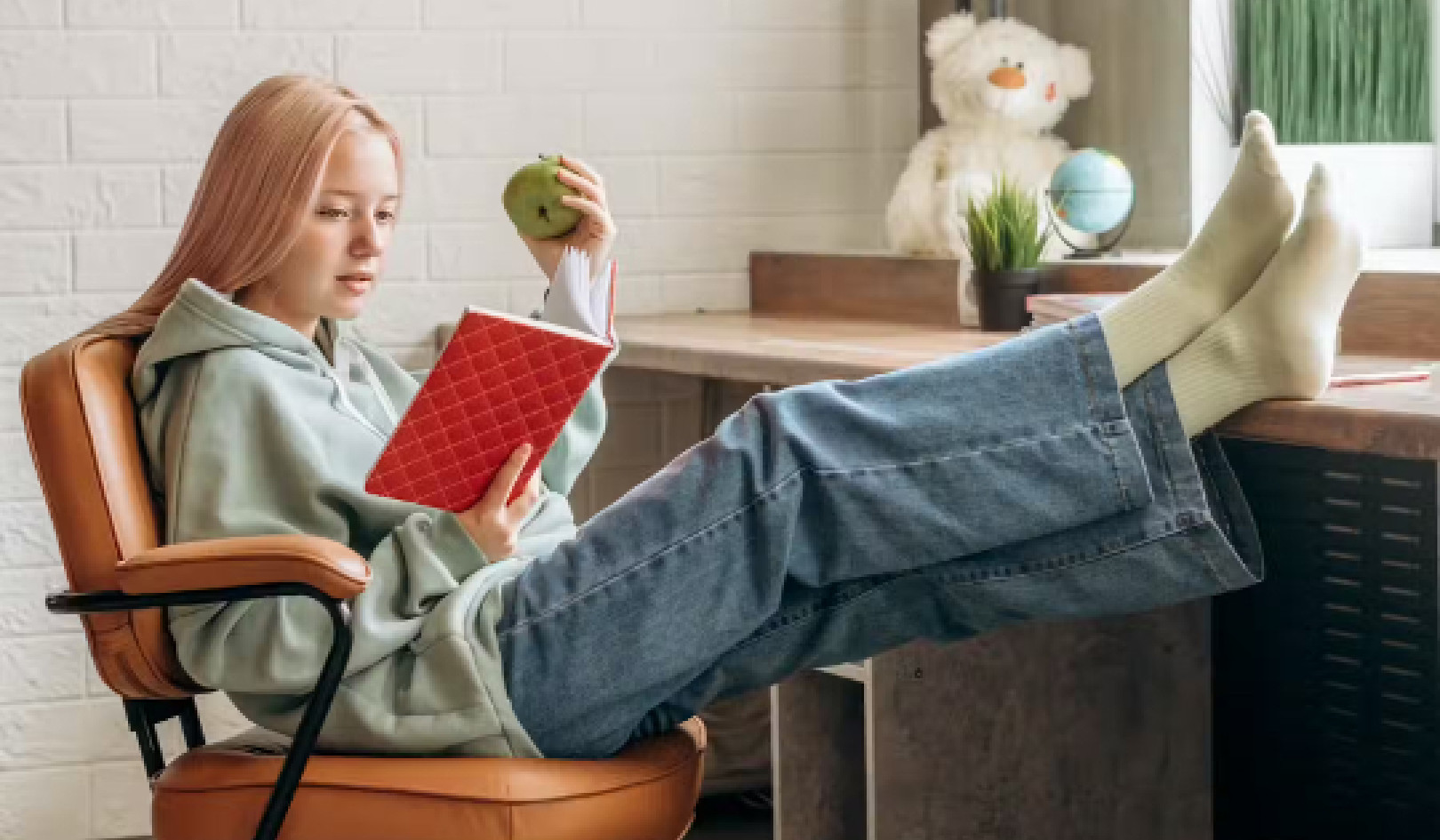
 s a mother, I have made life choices that can’t always include everything my children want—like hiking the Adirondacks. Here’s how I learned to overcome the guilt.
s a mother, I have made life choices that can’t always include everything my children want—like hiking the Adirondacks. Here’s how I learned to overcome the guilt.
We are driving home from Ula’s eye doctor appointment in Schenectady as Saoirse glances back over her shoulder at the mountains in the distance. She sighs.
“Can we please go to the Adirondacks this summer?”
Her question interrupts my thoughts. I am tallying how much garlic I have left in storage, calculating whether I will have enough to can a full bushel of pickles or only a half.
I pause in my computations before I give her a direct reply. “We cannot.”
I blame the tomatoes and swallow my guilt. We used to make the journey north to the mountains after Labor Day, once the summer crowds had thinned out. But the process leaves Bob and me more exhausted and stressed than if we simply stayed put. We have to pack up the family and prep all the food, arrange for our absence from the farm, and take our chances with the weather. Then comes the driving sticky kids and a loaded car back to the northern Catskills and then unpacking again amid the late-summer maelstrom that is the harvesting, dehydrating, and canning of tomatoes.
Honestly, it’s about more than just the tomatoes. It’s about all the activity that leads up to the tomato harvest: picking and freezing the blueberries and raspberries, canning peaches and green beans, feeding chickens and pigs, moving fence, cutting and wrapping lamb and beef, linking sausages, and all the packing, selling, and bookkeeping involved in going to market.
But my swallowed guilt doesn’t stay down. I taste its acid flavor again and again.
I remember my first big trip to the Adirondacks. Roland Crowe, a family friend and former North Country ranger from the 1960s, approached my mom when I was a freshman in high school. He wanted to bring his son and my older brother on a backpacking trip up to the Cold River, along the Northville-Lake Placid section of the Adirondack Trail.
“Shannon needs to go too,” she told him, keenly aware of the way my soul hungered for those mountains. He agreed to let me come.
Finding the Wilderness
For four days we carried our packs along that backcountry trail, crossing over the river, stopping to swim in her frigid waters, munching granola bars for lunch, napping on sun-warmed rocks, cooking meals over an evening fire. I seemed to suffer from hypergraphia on that journey, my journal and pen in hand at every possible minute, my body torn between living in the moment and wanting to capture every second of my bliss on paper.
I came home a changed person. The seed of intolerance for an artificially structured life had been planted. I was angry about returning to school. I dropped out of sports. I quit my extra-curricular clubs. I hadn’t found drugs, alcohol, or bad kids to drag me off the pedestal of the well-rounded student. I had found the wilderness.
But the Adirondacks are a two-hour drive from the farm. Our mountains are tame compared to the North Country, yielding to pastures and hay fields. The fertile Schoharie Valley winds between them, offering up the zucchini and sweet corn, the cucumbers and broccoli, and of course, the abundant tomatoes for which the valley is famous—the same tomatoes that will keep me home this summer.
The Choices of Adulthood
The journey to adulthood offers many choices. And behind those two words I spoke to Saoirse — “We cannot” — were a lifetime of them. That first big trip to the wilderness led me to study botany, to move out west to become a conservation assistant with a backcountry assignment. And I was miserable.
I learned that the wilderness could not hold me long without people. But somewhere between the wilds and the office cubicles lay this world of family farms, where people worked together and teamed up with nature to harvest a life.
While tamer than the wilderness, the agrarian life is just as relentless. I look around at my farming neighbors. They are keepers of the sweet corn, shepherds of the flocks, gatherers of the eggs, defenders of the turkeys, stewards of the gardens and hay fields, matrons of the canning pots. Like me, somewhere on their journey they learned that summer could not be spent indoors. But a commitment to farming comes with demands. I know of no Schoharie County farmers who will be taking a trip to the mountains this summer.
But that doesn’t ease my guilt. I am aware of how transformative my own Adirondack excursions were for me. And I want to give them to my daughters.
Acknowledging All That Is Possible
 The issue lies unresolved in my mind during a week of nonstop rains. On Thursday morning, there is a break in the clouds and fierce sunlight streams down to the earth, releasing jets of steam. Saoirse's and Ula’s friend Ania is visiting from California. They are playing with fierce energy, charging up and down the hillsides, forging paths in and out of fantasy worlds. In my head, I am organizing my day. There is firewood to be stacked before the afternoon thunderstorms begin, and the lawn is desperately in need of mowing. And once the rains return, perhaps I can finally get a start on canning the pickles.
The issue lies unresolved in my mind during a week of nonstop rains. On Thursday morning, there is a break in the clouds and fierce sunlight streams down to the earth, releasing jets of steam. Saoirse's and Ula’s friend Ania is visiting from California. They are playing with fierce energy, charging up and down the hillsides, forging paths in and out of fantasy worlds. In my head, I am organizing my day. There is firewood to be stacked before the afternoon thunderstorms begin, and the lawn is desperately in need of mowing. And once the rains return, perhaps I can finally get a start on canning the pickles.
But then three sweaty heads pop in the door, smiles bright.
“You’re taking us swimming up at the pond, right?”
“I am?”
I consider if there is a way I can rearrange my to-do list. I want to tell them that this wasn’t on the plan for the day. And then I realize I am not being given a choice.
The lawn will wait. The firewood will wait. The pickles will wait.
We load up the dogs, pack a few bottles of water, and make for the pond, where we while the hours away drifting, splashing, diving, and floating. I pull myself from the water and find a chair to sit and watch them as I gaze out over the mountains that surround us, their laughter and play as merry a sound as the song of a redwing blackbird that rings out from the pond’s edge.
I reflect further on those words: “We cannot.”
In one sense, they are an expression of limits. But at the same time, they are an acknowledgment of everything else that is possible.
The life choices I've made don't allow my children to have everything I want for them. But it will have to be enough.
Life Choices Made and Enjoyed
We cannot go to those mountains, it is true. But in exchange, we can dance in the sun, splash in the water of a pond nestled high in a mountain pasture. We can eat pickles and tomato sauce and fresh sweet corn; toss blueberries and raspberries into our mouths by the handful. We can grill our burgers beside the water’s edge, then chase them down with a slice of watermelon. We can sink our teeth into the meat of a sweet cherry and take turns spitting the pits across the deck. We can work hard to glean a living from this land. But we can play hard, too.
I miss the Cold River. I miss gazing out at the Adirondack lakes. But what I’ve got here is pretty sweet.
As a mother, I have made my own life choices. And those choices do not allow my children everything that they want. They do not even give my children everything I want for them. But it will have to be enough.
With each passing year, these girls grow more into their own independence. Soon enough, they, too, will be able to make choices, to save their money, to venture up into those mountains. And I will stay here, shucking the sweet corn, linking sausages, canning pickles, and slicing tomatoes, ready to hear all about it when they come back home.
This article originally appeared on YES! Magazine
(Sub-titles added by InnerSelf)
About the Author
 Shannon Hayes wrote this article for YES! Magazine, a national, nonprofit media organization that fuses powerful ideas with practical actions. Shannon is the author of Radical Homemakers: Reclaiming Domesticity from a Consumer Culture, The Grassfed Gourmet, and The Farmer and the Grill. She is the host of Grassfedcooking.com and RadicalHomemakers.com. Shannon works with her family on Sap Bush Hollow Farm in upstate New York.
Shannon Hayes wrote this article for YES! Magazine, a national, nonprofit media organization that fuses powerful ideas with practical actions. Shannon is the author of Radical Homemakers: Reclaiming Domesticity from a Consumer Culture, The Grassfed Gourmet, and The Farmer and the Grill. She is the host of Grassfedcooking.com and RadicalHomemakers.com. Shannon works with her family on Sap Bush Hollow Farm in upstate New York.
Watch a short video of Shannon Hayes addressing the Williams College Gender and Food Panel as she speaks about Self-Sustainability, Consumerism, and Radical Homemaking .
 Book by this Author:
Book by this Author:
Radical Homemakers: Reclaiming Domesticity from a Consumer Culture
by Shannon Hayes.
Click here for more info and/or to order this book on Amazon.

























